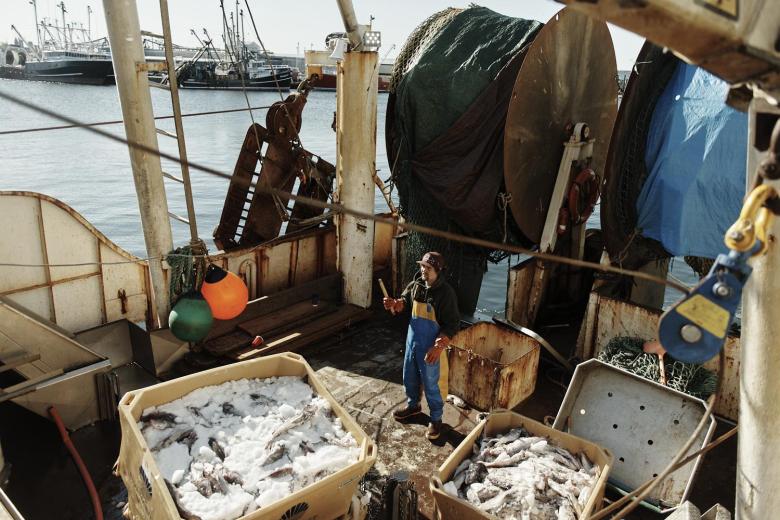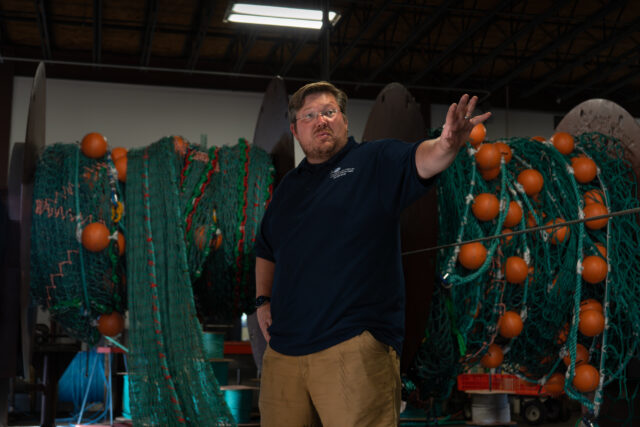You have to be careful when you swim with sharks — sometimes private equity sponsors. Sadly, for New Bedford, Blue Harvest did business with the Dutch private equity firm Bregal Partners. There’s a lot to unpack here, but one thing that sticks out is why a Dutch financial firm would have an interest in a New Bedford fishing company? Big fans of cod? Nope. Money. The answer is always money.
Private equity has been around for a long time. It is essentially the taking in of a bunch of money from SUPER-rich limited partners (think: billionaires and large endowments, pensions, etc.) and then having people with fancy degrees suit up and go out and find a target. Because that’s what it really is: a target. They’re the bullet. Private equity looks for companies in their strike zone that fit a certain profile, and in this case Blue Harvest was it. They were looking to purchase a controlling stake, take 3-5 years, put lipstick on it, and sell it to another firm at a tidy profit. This particular case ended up in a $100 million-plus sale of assets (strip mining) and then declaration of bankruptcy, and depending on timing and intent of the board of directors, it was technically permitted under the law — unless of course they meant to defraud shareholders, or are found to have breached fiduciary duty. Those two cases would be tough to prove in our opinion, however, as bankruptcies like this happen all the time and are considered an unfortunate, but relatively normal course of business in private equity.


Owned by a billionaire Dutch family, Blue Harvest Fisheries has emerged as a dominant force in the lucrative fishing port of New Bedford. Its business model: benefit from lax antitrust rules and pass costs on to local fishermen.
The point here is not to blame the process — it’s to learn to avoid the greedy players involved and reflect on why we all did not see it coming. Or at the very least for being surprised it happened.
When companies start, they often have founders that pour their blood, sweat, and tears into a mission over decades of hard work. If they’re lucky, they end up with a valuable operation that employs hundreds, if not thousands, of people. People with families. All of these “stakeholders” rely on a management team and eventually corporate board/governing structure to maintain and grow said company. Capitalism. In this case, built on the backs and boats of independent fishermen. It’s a great story and filled with toil and sacrifice.
The problem develops as the management and owners of the incumbent company get tired, bored, annoyed with their prospective heirs, or just plain in need of cash. This is when a private equity team comes in and woos management. They promise the world and longevity for what the founders have built. Safety and security for the employees and their families. The concern for vendors that serve the company. The whole ecosystem that the company has created around it. They also promise a wad of cash. In exchange, they now own and control the operation.
There are good private equity firms, and bad ones. There are those who have great track records of living up to their promises and creating value well into the future. They could very well be mission driven — meaning they really care about the industry in which they work (say, fishing and marine industry, in this case).
Then, there are the not-so-good ones. They could be run by dopes, greedy, nasty, unlucky, just plain terrible all around. They don’t give a hoot as to what they’re investing in, and they’re proud of it. When you get a latter PE firm, they often just run their playbook based on numbers on a spreadsheet. They don’t get to know the business, the people, and how moving those numbers around affects culture, operations, and the business at large. The original owners of Blue Harvest, as well-intentioned as they may have been, probably took the best offer they had on the table. And our city and some of our hard-fought industry gains ended up the worse for it.
In the future, it would serve everyone to know a bit more about the barbarians at their gates, and their intentions. Would they take the deal again? Maybe. Maybe not. Who knows? But I do know one thing: caveat venditor (let the seller beware). Better luck next time.
Philip N. Beauregard is a longtime New Bedford attorney. His son, Philip H. Beauregard is managing general partner for Impellent Ventures, a New York-based venture capital firm.







